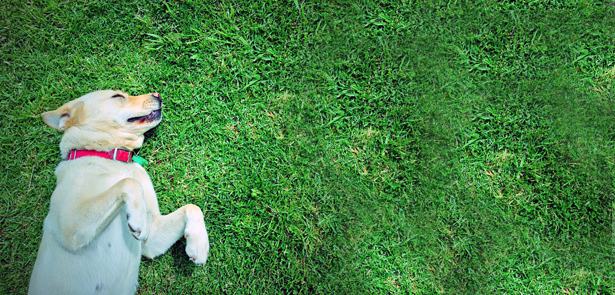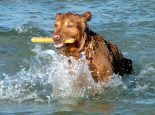Pet answers: fleas, seeds and breeds

Don’t settle for pet theories, get pet answers! Veterinary surgeon Cees Bennett answers your animal health questions
I HAVE BEEN TREATING MY DOG FOR FLEAS WITH LOTS OF DIFFERENT PRODUCTS BUT NOTHING SEEMS TO WORK, WHAT SHOULD I DO?
There are two things to look at here. The first is to understand the lifecycle of the flea and why that may make it difficult to get rid of them. 95% of the flea population is not on the animal but is in the environment and one adult flea can lay up to 50 eggs per day. This means that even if you use a product that kills the fleas on your dog there are still many new generations hatching in your home. To ensure your dog is flea free you need to treat not just your dog but also any other animals in the house and the house itself. Secondly there is the issue of products not being effective. Many of the products available contain older chemicals which it is thought are no longer as effective, both in treatments for animals and the house. Sometimes it is more cost effective and quicker to buy a product you can be confident in, such as those recommended by your veterinary surgeon.
MY DOG RUNS IN THE FIELDS A LOT AND IS GETTING SEEDS STUCK IN HER COAT, SHOULD I WORRY?
At this time of year there are a lots of grass and crop seeds around and these are just waiting to cause a problem! These seeds have very sharp ends that can easily penetrate the paw or armpit of a dog or get stuck under the eyelids. Because of their barbed shape once they get under the skin they will not easily come out and can often travel further in causing irritation and infection. The first thing you might notice is your dog licking its paw a lot and see an inflamed area. After each walk it is a good idea to check your dog over for any seeds and if you notice any sore areas get them checked quickly by your vet.
I WANT TO GET A DOG BUT I HAVE A YOUNG CHILD, SHOULD I CONSIDER ONLY CERTAIN BREEDS?
I would always treat each dog as an individual and not say a certain breed was ‘good’ or ‘bad’. This is especially the case if you are getting an adult dog from a rescue centre or as a re-home. If you are getting a puppy you have more opportunity to determine how it grows up and how its personality develops but it can be hard work and requires time. Certain breeds can be easier if it is your first dog but I would suggest speaking to an expert (a vet or a dog trainer for example) once you have a shortlist of breeds you like and maybe try and see some in the flesh if you have friends or family who have dogs.
Do you have a pet or animal health question? Send it to us at: editor@ themomentmagazine.com. Cees will endeavour to answer all questions, whether published or not!
 Cees Bennett BVetMed MRCVS Veterinary surgeon and Joint Venture Partner at Peterborough Vets4Pets 231-233 St Paul’s Road Peterborough PE1 3RL Tel: 01733 890777 & Bretton Vets4Pets Inside Pets at Home Unit 2 The Bretton Centre Peterborough, PE3 8DN Tel: 01733 261094
Cees Bennett BVetMed MRCVS Veterinary surgeon and Joint Venture Partner at Peterborough Vets4Pets 231-233 St Paul’s Road Peterborough PE1 3RL Tel: 01733 890777 & Bretton Vets4Pets Inside Pets at Home Unit 2 The Bretton Centre Peterborough, PE3 8DN Tel: 01733 261094















